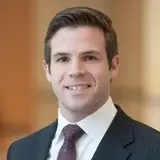Ujima Fund Investor Report Interview: Jeff Similien
- Boston Ujima Project
- Jul 6, 2022
- 4 min read
July 6th, 2022 -- Young. Black. Investing. This quarter, we sat down with a group of Ujima Fund investors under 40. In each interview, they unpack their investments, personal experiences and underscore the importance of collective work and responsibility.

Jeff Similien is the founder and CEO of Boston Trust Realty Group Commercial (BTRG), LLC, located in the heart of Mattapan Square, and has brokered several transactions with major franchises such as Papa John’s and Frugal Furniture, amongst others. However, Jeff’s focus and true passion has always been working with small business owners and guiding them through the often biased commercial real estate industry. Similien received a degree in Business Management from Curry College. In addition to real estate, Jeff is passionate about developing his community. He recently founded The Co-Pad, a collaborative co-working hub for entrepreneurs in the Mattapan, Dorchester and Hyde Park area. More recently, Jeff became the CEO and founder of Lowkey Dispensary, a black owned marijuana dispensary in Dorchester.
Tell us about yourself.
Well, my name is Jeff Similien. I’m a commercial real estate broker in Boston, Massachusetts. I have an office in Mattapan. I also own a marijuana dispensary that’s set to open later this year in Dorchester. I’m in line to open up a cultivation center in Hyde Park, and possibly a second location in West Roxbury. In addition, I founded a nonprofit called Kings Amongst Kings, where I help mentor young black men in the community. We meet once a month in Mattapan [to] talk and share stories to help each other grow.
How did you first hear about Ujima?
I first heard about Ujima from my business coach who mentioned a meeting that I believe Ujima was having in Roxbury. I attended that first meeting, where we talked about community investment opportunities. So I wanted to take advantage of what Ujima had to offer.
Are you an avid investor? Why was it important for you to invest in the Ujima Fund?
So I’ve been investing in real estate since 2006. I do invest in stocks and other commodities, but Ujima was one of the few investments that, to me, was about being black-owned. And, it was community-driven. So I definitely want to be part of that movement around community power and investment. So that was the biggest reason that I was willing to invest in Ujima.
What does being a young, Black investor mean to you?
I mean, just Black history and where we come from and not having opportunities as simple as being able to read and live independent lives, we’ve really come a long way. So when we talk about investing and ownership, I know it’s a privilege to be in this position. All that I’ve accomplished through my businesses and investments means a lot.
In what ways has the pandemic inspired you to question your investment practice? Have the past two years revealed any changes you want to live, work and invest?
One of the things that real estate has definitely taught me was to really slow down, analyze, and process things. I learn that just because an investment looks good now, it may not last forever. You really have to evaluate things based on what is sustainable in the long term, not based on its potential. So that’s something new I picked up from all of the volatility I saw in the pandemic.
After the 2020 uprisings, there was a lot of talk about investing in the Black community and Black entrepreneurs. From where you sit, are companies following through on their pledges to invest?
I mean there are definitely institutions making such commitments to gain popularity, so people just have to be careful about who they do business with and where they put their money. It’s ultimately about holding companies and people accountable. We should learn not to get easily baited by large dollar amounts when companies make pledges to certain causes. Because they can easily backtrack on these commitments. We just have to pay attention to keywords, so we don’t get bamboozled.
What are you most looking forward to when it comes to the future?
On a personal level, I’m a new father. So I want to be able to watch my kids grow and change over time. With my nonprofit organization, one of the things that I realized was that as men and Black people — we all go through a lot of trauma. Whether it’s about family, work, etcetera, a lot of us carry that trauma, and it’s a heavy burden on our backs. So I want us to understand that we don’t have to carry that on our backs every day; we can put that load down, be free, and move forward. So I just want to see more Black people seek therapy and talk openly about their experiences.
Any final reflections?
I just came back from Costa Rica, and it’s one of the most beautiful places ever. So I wanted to leave you with this saying I picked up from Costa Rica: pura vida. It’s a reminder to try and enjoy life no matter the circumstances. We’re living through a tough time in our nation’s history, so there are bad things going on everywhere in the world, but there are amazing and beautiful things as well.

.png)


